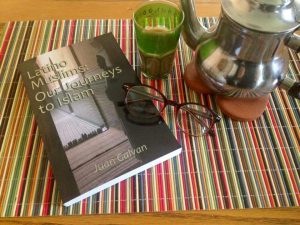As a light-skinned (Chicago winters will do that to anyone) Mexican-American, I have often had to deal with the frequent ‘you don’t look Mexican’ comments. Now that I am also Muslim (13 years & counting), I am more often mistaken for being Arab or Bosnian, so I actually blend in at the mosque. But when people find out I’m Mexican, they then ask the question ‘wait, how can you be Mexican and Muslim?’
Part of the issue for people not being aware of our presence has always been that the greater Latino/a community does not do a good job of marketing our stories. This is not totally our fault because Hollywood has not deemed us important enough to be featured in movies, even though we make up more than 30% of the movie-going audiences. Latinos/as have been even further delegitimized over the years when white actors simply put on brown face (ala West Side Story) to play Latinos/as or just chose non-Latino/a actors and actresses (an actor like Lou Diamond Phillips should thank Latinos every day for his roles) to play the roles of Latino/a characters. So it is not surprising that Latino/a Muslims are not a very well-known community since the larger community’s story is already not being told.

The importance of the book ‘Latino Muslims: Our Journeys to Islam’ is rooted in the fact that the Latino/a Muslim community deserves the opportunity to share our stories with the world. Too often our stories are left unheard and this is sad to me because I know how much can be learned through the personal narrative. One can theorize for years about the reasons a group of people may be embracing a new religion, but if that same group of people is given the platform to speak and present their stories, it is so much stronger and impactful.
Take for instance the story of Ricardo Pena. His path to Islam was one that included a thirst for knowledge that started with simply reading the daily newspaper on the bus on the way to school each day. But eventually, it led to his further desire to know about various religions in a search for his own truth, finally leading him to Islam. His story holds a common thread amongst many converts to Islam, the desire to know truth and have a personal connection to a faith that just feels right, feels like home. This book is hopefully the start of many narratives to be written about Latino/a Muslims and I pray that it is one that opens the eyes of many people to the often courageous, uplifting and emotional journeys many of us have taken in our spiritual paths.
Aaron Siebert-Llera, Esq. is the Staff Attorney for the Inner-City Muslim Action Network.